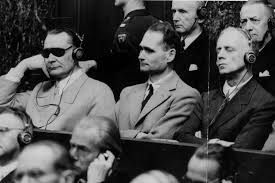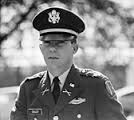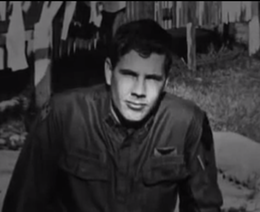
Thompson: What’s going on here, Lieutenant?
Calley: This is my business.
Thompson: What is this? Who are these people?
Calley: Just following orders.
Thompson: Orders? Whose orders?
Calley: Just following…
Thompson: But, these are human beings, unarmed civilians, sir.
Calley: Look Thompson, this is my show. I’m in charge here. It ain’t your concern.
Thompson: Yeah, great job.
Calley: You better get back in that chopper and mind your own business.
Thompson: You ain’t heard the last of this!
The My Lai Massacre is the most horrific crime the United States Army has committed in the past half-century. On March 16, 1968, 1LT William Calley, a frustrated and inept junior officer, directed his platoon to kill unarmed civilians in the South Vietnamese village of My Lai. Most were tortured, and many were raped. A bare minimum of 347 died; likely many more.
As the village was burning and the soldiers were killing, Army helicopter pilot Hugh Thompson heard the unit’s radio transmissions and flew to the vicinity. The dialogue above is between Thompson and 1LT William Calley, the officer who’d decided serial murder and rape was in the best security interest of the American people and their South Vietnamese allies. The killing stopped when Thompson landed his aircraft between 1LT Calley’s platoon and a group of Vietnamese civilians. He directed his door-gunner to orient his machine gun towards the American soldiers, and to kill them if they advanced towards the civilians.
The Massacre of My Lai is often cited a slightly more relatable example of the moral failings of the Nuremberg Defense, and it is very useful in explaining the principle. However, the Nuremberg Defense is a bad answer to what is primarily a legal and ethical question – when am I allowed to kill? We still need to understand how we make that decision internally, before we do the risk/benefit analysis, which we base upon external factors. Had this story ended with an American pilot killing a three dozen soldiers of his own army, it’s doubtful his story would be cited to every US Army officer candidate or cadet as the bright, shining example of morality under fire. The soldiers had families who would mourn for years. The wounded would experience lifetimes of physical pain and psychological trauma. However, very few of us would condemn Thompson for inflicting any of this. If anything, many of us would likely regard him as a more morally admirable person for having ended those lives, for having ripped apart those bodies. Why?

I understand morality and moral behavior as a zero-sum equation. I believe my behavior contributes to a net increase or decrease in suffering. It is my responsibility to decide if my decisions create more or less suffering. A decision that prevents or mitigates suffering is necessarily moral. My base assumption – the one belief I do, in fact, take on faith – is this: Suffering is Bad. We can best explore this principle through the lens of violence.
Taken in isolation, violence is immoral. We behave violently to cause our enemy to suffer. This suffering will overwhelm his ability or motivation to resist our agenda. When we take this idea to its obvious conclusion, we kill. Our enemy will never again oppose us – or anybody, or anything. He’ll be dead. The men Thompson would have killed would never raise children, never love wives. They’d never start businesses and allow others to support their families. Countless ideas and creations would have never been realized. Still, most of us can agree those deaths would have been justified, and many of us – thoughtful, committed humanists – would actually applaud the killer. We’d do so because that decision to kill would result in less net suffering than the alternative: to passively observe a spontaneously man-made hell.
Last week, my wife’s car was broken into. We did suffer, but to a very minimal extent. Had any of our three criminally unaware dogs alerted us to this crime, I would’ve had the option of behaving violently to prevent our suffering. What level of violence would’ve been morally permissible? A threat is violent; may I have yelled at him from my porch while my wife called the police? Most of use would agree this would be a permissible level of violence. Assuming I was confident/stupid enough to do so, may I have initiated an unarmed physical altercation? What if I had threatened him with a firearm? Assaulted him with club or a knife, severely injuring and perhaps disabling him permanently? Killed him? For most of us, the level of acceptable violence in this scenario lies somewhere between total passivity and ending human life.
When I behave violently, I do so because I believe it will result in a net decrease in suffering. Being unnecessarily violent can easily tip the balance of a moral equation, making morally just behavior unjust. That’s the standard I apply to myself, and by which I judge violence in other human beings. The equation’s never quite balanced, though, because I can never assign absolute values of suffering to my behavior, that of anyone else.
Hugh Thompson did not kill that morning in March ’68. However, it’s unlikely an American scout pilot in Vietnam would complete his tour without ending many human lives. We can assume Thompson’s days in Vietnam often ended with a negative moral balance. Mine certainly have – and not only in war, but in my routine, habitual behavior. Nearly every decision I make has a net moral effect. However indirectly, they will either add to or detract from the world’s net suffering. Making a deliberate effort to be compassionate, to be thoughtful, and to fiercely confront those who are not is how I ensure a positive moral balance.
